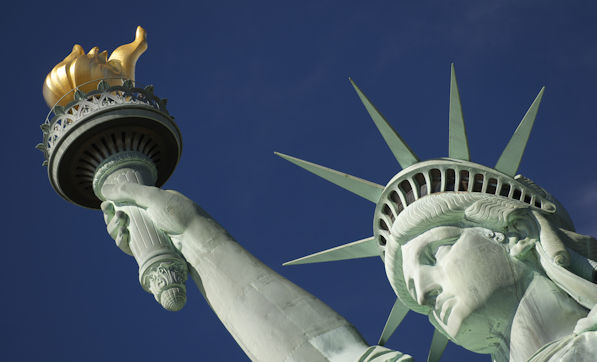A reminder that the power of government and the power of faith are different and best kept separate.
RONNIE MCBRAYER
Ministry Matters.com
Regardless of the particular denomination, most of this country’s churches are fiercely joined to American nationalism. On this Independence Day weekend you will likely find “God and Country” rallies inside churches of all theological brands.
Stars and stripes will drape the ceiling. Patriotic songs will boom across the sanctuary. There might even be a military color guard in front of the pulpit. Stories of economic and armed forces supremacy will mingle with the Bible’s stories of faith.
Not that any of this, in and of itself, is necessarily a bad thing, but it does remind me of Tony Campolo’s nimble words. He said, “Mixing government with the church is a lot like mixing horse manure with ice cream. It doesn’t affect the manure very much, but it really ruins the ice cream.”
Largely, the church has operated under the false notion that America actually belongs to us Christians. We have accepted the preaching of the kingdom of God and the rallying around the red, white, and blue as synonymous. We have long believed that the church and the state can make beautiful music together if only the two would cooperate (or put more accurately, things would go much smoother if we Christians could control the state). I don’t think this is very good for the ice cream.
Yes, I love my country. I enthusiastically sing the National Anthem, say the pledge, “do my part,” and pay my taxes (though the latter is performed with less enthusiasm than the former). But I recognize that the sacrificial, life-giving, peace-pursuing, cheek-turning way of Christ, and the domineering, power-hungry, least-of-these-abusing systems of the world, aren’t compatible. And when these different ways of living are mixed together – Tony is right – it all starts smelling like guano.
But this is nothing new. Not many decades after the resurrected Jesus ascended to heaven and the Apostles died, somebody decided it would be a good idea for the church to join forces with the powers that be. Just imagine how many people could be converted, helped, enrolled, and evangelized if the church were more powerful, more organized, and more efficient – if the church were in charge!
So the church went for power and won it in spades. The coffers ran over with gold, people of influence, including kings and queens, began to seek the ministers’ approval on policy, the pews were full every Sunday, there were no more martyrdoms (unless you were someone who opposed this new arrangement), and as Vernard Eller said, “the church’s computers jammed trying to move all the names from the ‘Pagan’ column to the ‘Christian’ column until somebody realized it was just easier to switch the headings.”
Ever since, and this was centuries ago, Christians have more or less pined for the seats of governmental power, believing that such an approach would enhance the work of God. What actually happens is a stinking mess. With the infatuation of being “in charge,” we seem to forget that the way of our Lord was not the way of domination, but the way of submission and sacrifice.
Roger Williams, New England Puritan preacher, founder of Rhode Island, organizer of America’s first Baptist congregation, and champion of religious liberty a full century before Thomas Jefferson, was the one who actually coined the phrase “wall of separation” between church and state.
He understood that the two should be kept separate, not to protect the government, but so as not to pollute genuine faith. Power simply has a way of corrupting spirituality. I suppose we must relearn that lesson: Any state religion – whatever name it might go by – is illegitimate, for faith is matter of heart and spirit, not coercion or force.
So this weekend, in my own church sanctuary, I will pause and thank the heavens for my country, its freedoms, and acknowledge that God has indeed “shed his grace” on us. But I want no part in creating a “Christian America,” for such an effort might taint my ability to actually be a Christian, a Christian who happens to reside in America.
Last Updated on November 9, 2023

